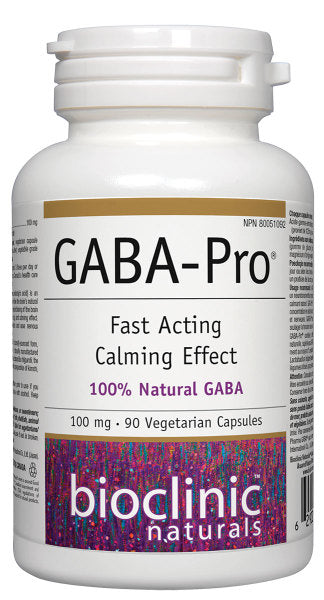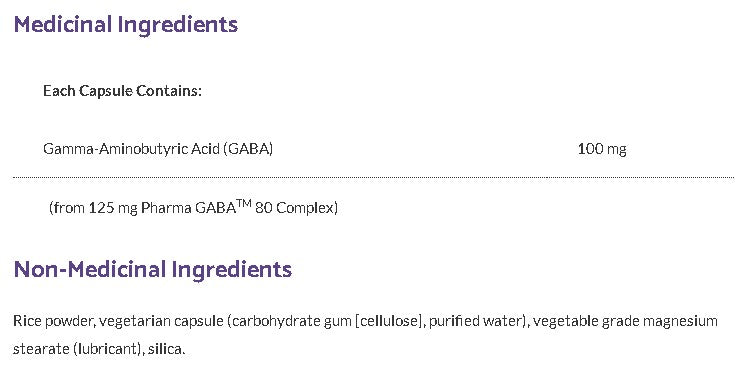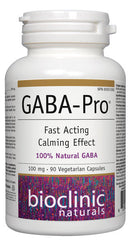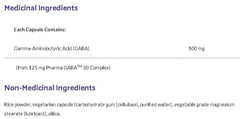



GABA-Pro® · 100 mg
- 33.99$
0.00$- 33.99$
- Unit price
- per
Description
x- Improves calmness and relaxation from daily stress, reduces the negative effects of caffeine consumption, and complements other anti-stress supplements.
- Fast acting, effects can be felt in as little as five minutes and last four to six hours.
- GABA-Pro uses Pharma GABA, the natural form of GABA that is superior to the synthetic form. It is naturally produced through a fermentation process that uses Lactobacillus hilgardii, the bacteria used to ferment vegetables in the traditional Korean dish, kimchi.
- Gentle and non-habit forming, it has virtually no side effects.
- Suitable for vegetarians/vegans
Gamma-aminobutyric acid (GABA) is one of the primary inhibitory neurotransmitters in the central nervous system, balancing the excitatory effects of glutamate on neuronal activity. The inhibitory effects of GABA are generally considered to reduce anxiety, release muscle tension, and have sedative-like effects. Furthermore, conditions such as anxiety, depression, insomnia, and epilepsy have all been associated with low GABA levels or activity. GABA has also been shown to cause a significant increase in alpha brain waves compared to controls, indicating a more relaxed state and improved concentration. In a clinical trial of patients with vertigo, GABA-Pro was found to increase salivary IgA levels while crossing a suspension bridge, compared to the control group whose salivary IgA levels dropped by 35%.4 This is indicative of the stress-reducing effect of GABA-Pro.
Increasing GABA activity is also a therapeutic target for many drugs used to treat insomnia, often by targeting GABA receptors. This has the effect of reducing the number of awakenings, shortening sleep latency, and increasing slow-wave sleep.
Produits recommandés
Produits récemment consultés
- Choosing a selection results in a full page refresh.



